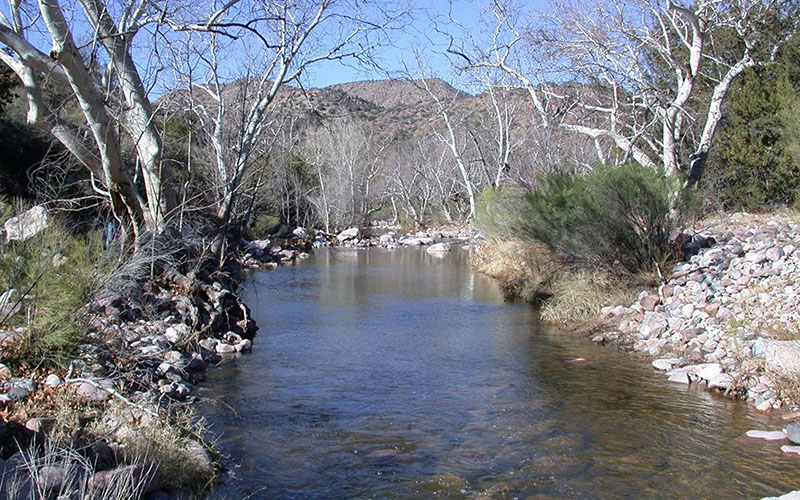
Arizona’s Pinto Creek has been subject to regulation under the Clean Water Act, but questions have been raised over whether other streams, wetlands and the like are regulated. New rules from the EPA aim to settle the issue. (Photo courtesy Michael Brady)
WASHINGTON – Federal officials Wednesday unveiled a rule meant to settle the question of which bodies of water are subject to the Clean Water Act – but it did little to settle the fight over the issue.
Within hours of its release, critics were attacking the “Waters of the United States” rule as an attempt by federal regulators to extend an “ever-creeping jurisdiction on land use” that has little to do with the waters the act was designed to protect.
Supporters of the rule were just as quick to come to its defense, saying it merely clarifies the Clean Water Act and will protect water quality while benefiting businesses and governments that must deal with the regulations. They said the rule is long overdue.
See related story:
Both sides look for answers in feds’ clarification of Clean Water Act
The Clean Water Act, passed in 1972, made it illegal to dump pollutants into “navigable waters” of the U.S. without a permit, according to the EPA. But court cases in recent years have challenged the definition of navigable waters.
McCarthy said the new rule does not expand waters that are subject to regulation. She said it merely is a science-based definition of upstream waters that need protection “in order to restore and maintain the chemical, physical or biological integrity” of downstream waters.
Waters designated under the rule could include wetlands or waterways that go dry for parts of the year, as well as lakes and rivers.
McCarthy was careful to say that the new rule will not conflict with private property rights and will not affect farmers, whom she called America’s original conservationists.
That did not sway Bas Aja, executive vice president of the Arizona Cattle Feeders’ Association, who said his group is “extremely disappointed” in the final rule.
Rep. Paul Gosar, R-Prescott, questioned the science behind the rule, saying in a prepared statement that it was “built on a foundation of pseudo-science, deception and lawlessness.”
“This job-killing, overreaching water grab being imposed by Washington bureaucrats is a dream killer for future generations and local economies,” said Gosar.
The proposal has faced challenges from the start, with the EPA and the Army Corp of Engineers saying they had received more than a million public comments on draft versions of the rule.
“Many changes … in the final rule were based on public comments,” said Jo-Ellen Darcy, an assistant secretary of the Army in charge of civil works, who joined McCarthy on a conference call to release the final rule.
“I think you will see that we have made substantial changes,” in response to those comments, McCarthy said.
Sen. Jeff Flake, R-Arizona, said in a prepared statement that the changes did not go far enough and that “Arizona’s landowners, businesses and economy would be best served if EPA were sent back to the drawing board.”
But Rep. Raul Grijalva, D-Tucson, said in a statement released by his office that the rule would “help prevent the destruction of our nation’s water resources.”
He and others noted that one in three Americans rely on drinking water from a stream that is lacking protection under the current rules.
Grijalva accused Republicans of falling back on the argument that environmental protections will destroy the economy.
“Their talking points have been so wrong, for so long, that they’ve lost all credibility on the issue,” Grijalva’s statement said. “These attacks are reflexive, irresponsible and as hollow today as they were when first claimed decades ago.”
Sandy Bahr, director of the Grand Canyon Chapter of the Sierra Club, said her group was “very pleased that the rule came out and is really supportive.” She said water rules are important for the state, even though a “lot of time people think that Arizona doesn’t have much water, so it’s not a big deal.”
“Most of our waters don’t flow year-round and this rule clarifies that these waters are protected,” Bahr said.